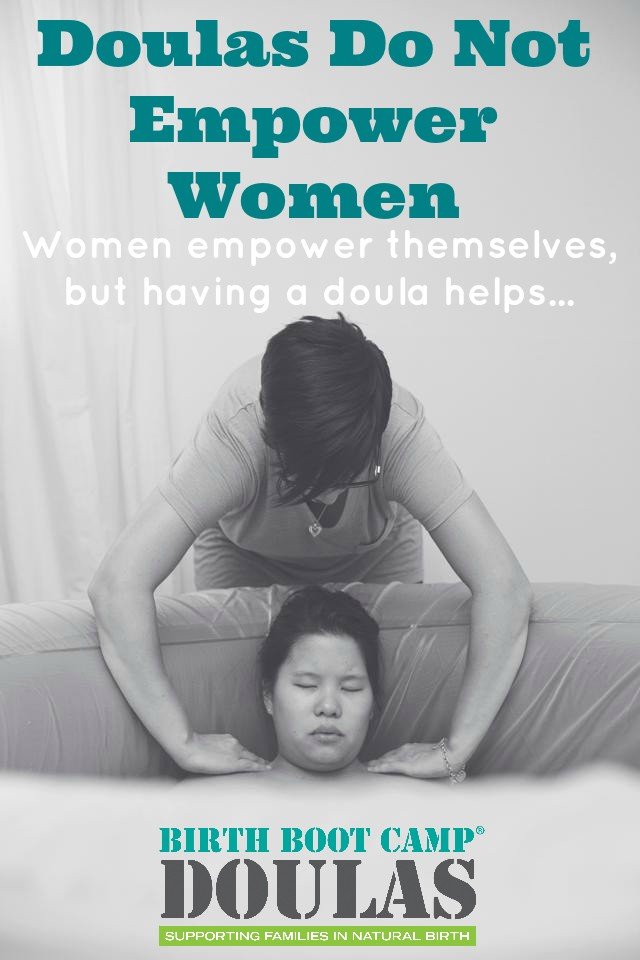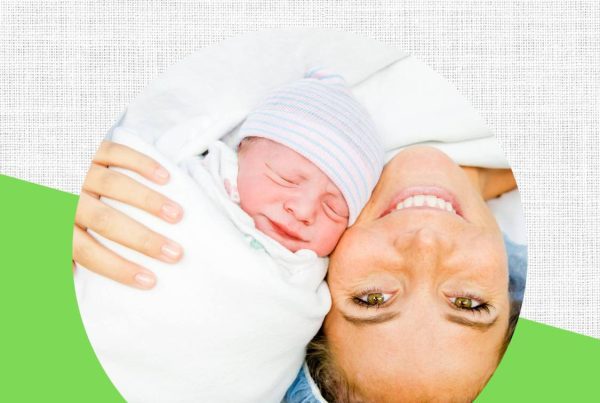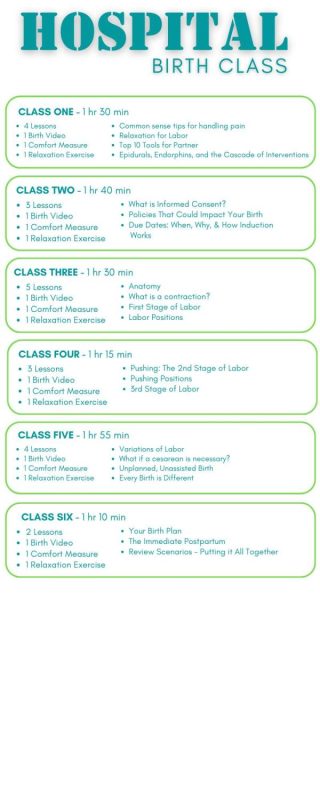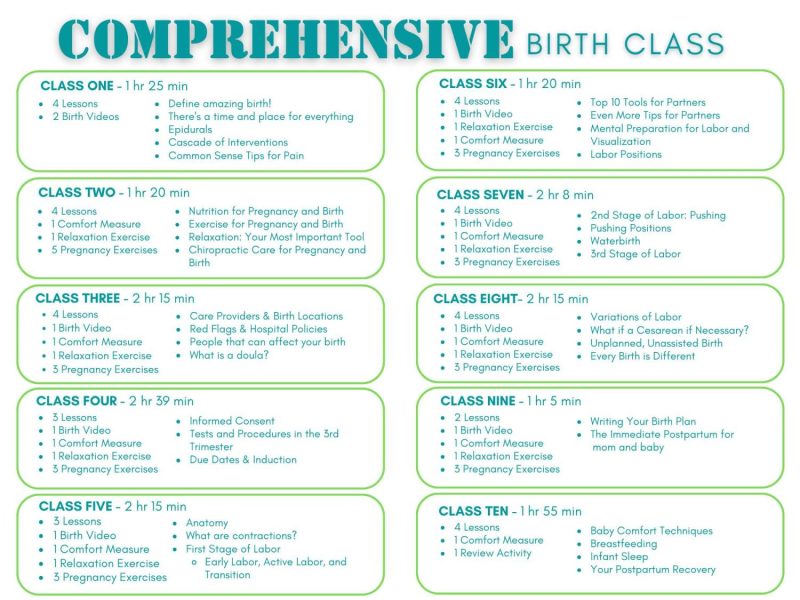Doulas do not empower women, women empower themselves. But having a doula helps.
A few years ago, I had to explain what doulas are to family members, friends and acquaintances. Now the work is a little less strange and doula work is a little better understood. I see fewer confused faces when I introduce myself as a doula. It’s nice. Word is spreading that women with continuous support from doulas are more likely to have spontaneous vaginal births, shorter labors, less use of interventions such as anesthesia, epidurals and cesareans, and even have babies with higher APGAR scores (Hodnett E., Gates, S., Hofmeyr, G., & Sakala C. 2013).
Still many people don’t know what doulas are and many who would like doula support do not have it. I’m happy to share that rates of doula support are increasing because that tells me more women are having better births with lower rates of interventions. As Kozhimannil et al found, doula support in birth lowers risk of cesarean by as much as 60-80% and increase comfort and satisfaction for one of the biggest events in the lives of parents (2014). But more women want doulas. We are an underutilized resource and the body of evidence for the effectiveness of doula support is growing. If you think you might want a doula, don’t hesitate. We want to help.
Maybe you have heard of the “cascade of intervention†that can lead to more medicalized birth and cesarean. That’s one thing we can help temper. Sometimes it may feel like an intervention is the only option, and one intervention often leads to more. Doulas help women and their families evaluate choices and make sure expecting parents are aware of their options. Medical interventions come with risks, some may seem small, but risks are cumulative and some have known long term consequences.
Doulas work with women to help them use and build their own strength. We help women realize their own strength by supporting them. We are there to offer physical comfort, emotional support, and provide up to date, accurate, evidence-based information to the best of our abilities aiding the process of childbirth. Through this process fewer interventions are needed or elected by the informed and supported family.
Doulas do not prevent women from using medical interventions but offer alternatives so that women may choose what is right for them and do not feel the need for interventions. Doulas do not empower women, but they do help women empower themselves.
We support women and their families. And when women do choose interventions, it’s usually with more time to talk about their choices, receiving more information and after offering or exhausting non-medical strategies.
Echoing the long held assertions of natural birth advocates, the American Congress of Obstetricians and Gynecologists (2014) recently sited doula support as an effective and harmless strategy for preventing unnecessary cesareans. Cesareans carry risks that many women, even those who have undergone them, are unaware of according to the Listening to Mothers Survey II (2006). These include: “severe maternal morbidities::defined as hemorrhage that requires hysterectomy or transfusion, uterine rupture, anesthetic complications, shock, cardiac arrest, acute renal failure, assisted ventilation, venous thromboembolism, major infection, or in-hospital wound disruption or hematoma::was increased threefold for cesarean delivery as compared with vaginal delivery,†including complications that effect long term reproductive health.
In the last few years, we have begun to see the cesarean rate dropping very gradually from a high of 32.9% to 32.7% (Hamilton, B.E., Martin, J.A., Osterman M., & Curtin SC, 2014)/ The efforts of many to improve maternity care, from individuals, consumer advocate organizations, labor doulas, medical professionals, medical organizations and collaborative organizations made up of all of the above, are beginning to turn the tide. But we still have a long way to go.
The late, great Marsden Wagner (former Director of the Women and Children’s Health for the World Health Organization) wrote, “labor and birth are functions of the autonomic nervous system and are therefore out of conscience control. . . two approaches to assisting at birth: work with the woman to facilitate her own autonomic responses – humanized birth; override biology and superimpose external control using interventions such as drugs and surgical procedures – medicalized birth.†Doulas are clearly part of the humanizing model. In a way that an untrained friend, partner and even your own Mother (probably) can’t, a doula can help guide and engage a willing support team, including moms, partners, siblings, kids and occasionally medical providers connecting the team to the laboring woman and improves outcomes as well as satisfaction. Friends and loved ones can help women feel better about their birth, but they don’t reduce the use of interventions (Cochrane, 2012).
Doulas help women so women can make choices about their care. We can’t guarantee outcomes, but we can help women improve theirs. I hear people say that doulas empower women. I don’t agree. Doulas do not empower women, women empower themselves. But having a doula helps.
If you think you might want a doula- then you probably should. If you don’t already want a doula, maybe you should consider the conclusions Hednet, et all came to… “All women should have support throughout labor and birth.†A doula is one of the best kinds of support you can have for your labor and birth.
 In a nutshell, Alex Rounds is a moderately well-adjusted human being. She is a member of La Leche League, a Breastfeeding Counselor, and Mom. She has three fun, quirky and ever-challenging sweet kids. Presently, Alex’s time is consumed with homeschooling, studying midwifery, volunteering, providing breastfeeding support, and attending birth as a doula. You can find Alex at www.AlexTheDoula.com or on Facebook at Facebook.com/alexthedoula.
In a nutshell, Alex Rounds is a moderately well-adjusted human being. She is a member of La Leche League, a Breastfeeding Counselor, and Mom. She has three fun, quirky and ever-challenging sweet kids. Presently, Alex’s time is consumed with homeschooling, studying midwifery, volunteering, providing breastfeeding support, and attending birth as a doula. You can find Alex at www.AlexTheDoula.com or on Facebook at Facebook.com/alexthedoula.
References
American College of Obstetricians and Gynecologists and Society for Maternal Fetal Medicine. (2014) Obstetric Care Consensus Series- Safe Prevention of the Primary Cesarean. Delivery. Number 1. 2014, March
Declercq E., Sakala C., Corry, M., & Applebaum S. (2006) Listening to Mothers II: Pregnancy and Birth. New York: Childbirth Connection, October 2006.
Hamilton BE, Martin JA, Osterman MJK, Curtin SC. (2014) Births: Preliminary data for 2013. National vital statistics reports; vol 63 no 2. Hyattsville, MD: National Center for Health Statistics. 2014.
Hodnett E., Gates, S., Hofmeyr, G., & Sakala C. (2013) Continuous support for women during childbirth. Cochrane Database Systemic Review. 2013 Jul 15;7:CD003766.
Kozhimannil, K., Attanasio, L., Jou, J. , Joarnt, K., Johnson, P., & Gjerdingen, D. (2014) Potential Benefits of Increased Access to Doula Support During. American Journal of Managed Care. 2014. Vol 20. N 8. Retrieved from http://www.ajmc.com/publications/issue/2014/2014-vol20-n8/potential- benefits-of-increased-access-to-doula-support-during-childbirth/3#sthash.fwMhGi3R.dpuf
Wagner, M. (2000). Fish Can’t See the Water. Retrieved from https://www.birthinternational.com/articles/birth/18-fish-cant-see-water)








